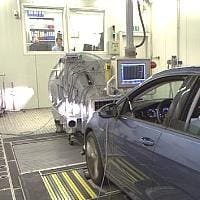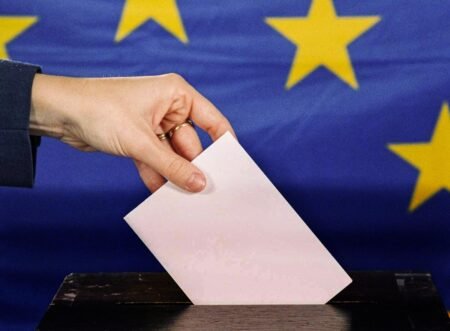(BRUSSELS) – Stronger supervision of the European car approval system was voted in by the EU Parliament Thursday, giving the Commission the power to make sure manufacturers are no longer able to cheat on emissions.
The new regulation clarifies the responsibilities of national type approval authorities, testing centres and market surveillance bodies, in order to make them more independent and prevent conflicts of interest.
Type approval is the process whereby national authorities certify that a vehicle model meets all EU safety, environmental and production requirements before it can be placed on the market. To be approved, a vehicle type must be tested for several requirements, for instance, with regard to safety (lights, brakes, stability or performance in case of accident), environment (e.g. emissions) or specific parts (for example, seats or interior fittings).
The Commission welcomed the vote. “The new rules will give us cleaner cars on our way to zero emission and safer cars for the roll-out of autonomous driving,” said Commissioner for the Internal Market Elzbieta Bienkowska.
“This is a strong Europe-wide response to the ‘Dieselgate’ scandal,” said Parliament’s rapporteur Daniel Dalton MEP: “This legislation will make cars safer and cleaner and, combined with the Real Driving Emissions testing, will ensure that a future ‘Dieselgate’ can’t happen again. (…) It delivers for car owners, for the environment and for manufacturers, with standards fairly applied and appropriately applied across the board.”
The regulation requires every EU country to conduct a minimum number of checks on cars each year, i.e. at least one for every 40,000 new motor vehicles registered in that member state in the preceding year. At least 20% of these tests will have to be emissions-related. For countries with a low number of car registrations, there will be a minimum of five tests to be conducted.
The Commission will also be able to carry out tests and inspections of vehicles to verify compliance, to trigger EU-wide recalls and to impose administrative fines on car makers of up to 30 000 per non-compliant vehicle.
The legislation introduces a new testing regime to ensure cars remain within emission limits throughout their lifetime. The testing centres (so-called “technical services”) will be regularly and independently audited.
Car owners will be reimbursed if they make repairs on vehicles to fix issues later subject to a manufacturer’s recall, and independent garages will have access to relevant information on vehicles to be able to compete with dealers and help drive down prices.
The regulation needs to be formally adopted by the other co-legislator, the EU Council. The new rules will be applicable from 1 September 2020.
Further information, European Parliament
Adopted text: Regulation on the approval and market surveillance of motor vehicles








